 Few Japanese words dominate otaku lingo as the word senpai. Senpai, also spelled as sempai, sometimes appears more as punctuation to speech than a proper honorific. It also has a distinctive submissive flavor. Senpai (せんぱい or 先輩) is an honorific used to address someone who is superior to you in status. Honorifics are parts of speech used to denote relationship and social status relative to the speaker. English’s closest equivalents include Mr., Ms., Mrs., and Sir/Ma’am. Honorifics attach to the end of the person’s surname (kincaid-sensei). A few stand alone as you see in the famous otaku phrase:
Few Japanese words dominate otaku lingo as the word senpai. Senpai, also spelled as sempai, sometimes appears more as punctuation to speech than a proper honorific. It also has a distinctive submissive flavor. Senpai (せんぱい or 先輩) is an honorific used to address someone who is superior to you in status. Honorifics are parts of speech used to denote relationship and social status relative to the speaker. English’s closest equivalents include Mr., Ms., Mrs., and Sir/Ma’am. Honorifics attach to the end of the person’s surname (kincaid-sensei). A few stand alone as you see in the famous otaku phrase:
Please notice me, senpai.
The phrase comes in a few variations such as “I hope senpai will notice me.” It refers to the speaker’s desire for a mentor or someone from a higher grade level to admire them or fall in love with them. I can’t point to a specific anime/manga and claim it started the phrase. Rather, the phrase encapsulates a common storyline in romantic anime/manga. In such stories, a character pines after someone in a higher grade (a senpai) who doesn’t show any signs of knowing who the character is or tries to ignore the character. This ranges from romance to seeking friendship.
 For many teen otaku, the phrase captures their struggles with relationships and their social awkwardness. The stereotype of the socially backward recluse holds true for some members of the community–unless you count their online socialness. Many of these stereotypical otaku possess great online social abilities and run successful blogs. In any case, the “I hope senpai will notice me” phrase appeals to many who struggle and worry about their social lives. Many of the struggles found in anime and manga, and the ubiquity of the high school setting, mirror the same struggles of fans. The awkwardness of awakening sexuality. The struggle of growing into adult responsibilities. The struggle with learning the dos and don’ts of socialness.
For many teen otaku, the phrase captures their struggles with relationships and their social awkwardness. The stereotype of the socially backward recluse holds true for some members of the community–unless you count their online socialness. Many of these stereotypical otaku possess great online social abilities and run successful blogs. In any case, the “I hope senpai will notice me” phrase appeals to many who struggle and worry about their social lives. Many of the struggles found in anime and manga, and the ubiquity of the high school setting, mirror the same struggles of fans. The awkwardness of awakening sexuality. The struggle of growing into adult responsibilities. The struggle with learning the dos and don’ts of socialness.
Many introverts identify with the fading-into-the-background aspect of the phrase.I think back to my own high school years and see how my own struggles fall into the scope of the phrase. I wasn’t much of a socialite, but then I’m still not. Social ability differs from social proclivity. While I like to fade into the background (and can’t as a library manager), back in high school it was frustrating to be looked over in everything but my grades. My intelligence became my plea of “Please notice me, senpai.” Looking back, I cringe. I value my privacy and solitude now, but back then it often frustrated me that I couldn’t break out of my shell and be noticed. I didn’t have a particular senpai. I succumbed to the extrovert bias that infects American society. In some ways, introverts in American society struggle. Social America-senpai ignores the need of introverts for recognition and respect for our different nature. “Notice me, senpai” well captures the struggle of many people.
Although honorifics are ancient, the phrase is recent. According to Google Trends, the first blip of searches for the phrase appears in August 2012. 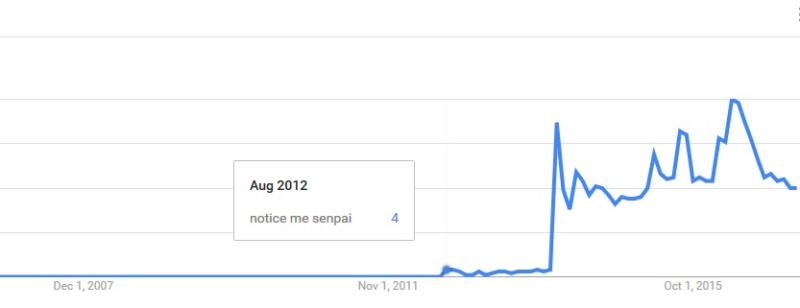
As you can see, interest in the phrase spikes as the otaku community latches onto it. Phrases like this became part of a community’s defining language. Language within a subculture separates those who are in and truly get it from the wannabes. Jargon also expresses sentiments and common experiences efficiently. “Please notice me, senpai.” can be read as a painful plea or as a comedic meme or both, depending on circumstance. But for those not initiated in the otaku culture (I make no claims to being an initiate), the phrase appears alien. The phrase makes fun of popular culture and lets mainstream culture-senpai notice otaku culture. Perhaps not in a positive way, but mainstream culture still notices.
 The phrase also has a sexual component. In some cases, the person seeking to be noticed will flaunt themselves using the tired tropes of fan-service: “accidental” peeks being among the most common. While I doubt this happens often within otaku life, the Internet shows this as a part of the phrase. If you search for senpai you’ll see sexualized fan-service poses. This means people have made the connection between the honorific and sexuality. Within anime, a female character will sometimes use her looks as a means to be noticed, so the association is built into its popular foundation. This sexuality is neutral. You’ll see it in heterosexual and gay and lesbian contexts. Anyone of higher social status relative to you can be a senpai. Some stories play on the idea that a senpai has more experience (read:sexual experience) than the protagonist who is sexually innocent.
The phrase also has a sexual component. In some cases, the person seeking to be noticed will flaunt themselves using the tired tropes of fan-service: “accidental” peeks being among the most common. While I doubt this happens often within otaku life, the Internet shows this as a part of the phrase. If you search for senpai you’ll see sexualized fan-service poses. This means people have made the connection between the honorific and sexuality. Within anime, a female character will sometimes use her looks as a means to be noticed, so the association is built into its popular foundation. This sexuality is neutral. You’ll see it in heterosexual and gay and lesbian contexts. Anyone of higher social status relative to you can be a senpai. Some stories play on the idea that a senpai has more experience (read:sexual experience) than the protagonist who is sexually innocent.
As for the honorific itself, senpai is half of a male social relationship. Kohai forms the other half. Strangely, Japanese women are not as aware of this social relationship as men are (Sugihara & Katsurada, 2002). The senpai-kohai relationship is a give and relationship. The senpai dominates the kohai who must follow his orders. The senpai’s opinions are absolute, and the senpai’s social standing improves as he gains more followers. As you can tell, the structure originated in feudal Japan, but to a certain degree this continues in the corporate world as well. As for the kohai, he benefits from his senpai’s mentorship, experience, and social standing. Kohai receive jobs, social positions, and emotional support from his senpai. These relationships form some of the most important and lasting relationships between Japanese men (Sugihara & Katsurada, 2000).
 Anime glosses over this relationship because of its fixation on high school. Parts of the relationship remain in anime, however. Upper classmates are expected to mentor lower classmates, and lower classmates follow the orders of their senpai as if the orders came from a teacher. Sometimes the lower classmate, the kohei, benefit by associating with a certain popular senpai. Some of the popularity rubs off on them, so to speak. But anime likes to show the senpai-kohei relationship as mostly one-directional. The lower classes serve the upper. It makes for a convenient source for tension within a story as unfair senpai stir resentment that needs to be tamped down, lest social norms be violated.
Anime glosses over this relationship because of its fixation on high school. Parts of the relationship remain in anime, however. Upper classmates are expected to mentor lower classmates, and lower classmates follow the orders of their senpai as if the orders came from a teacher. Sometimes the lower classmate, the kohei, benefit by associating with a certain popular senpai. Some of the popularity rubs off on them, so to speak. But anime likes to show the senpai-kohei relationship as mostly one-directional. The lower classes serve the upper. It makes for a convenient source for tension within a story as unfair senpai stir resentment that needs to be tamped down, lest social norms be violated.
“I hope senpai notices me” acts on many levels within otaku culture but has little to do with the origins of senpai in feudal Japanese society. Like with most online cultures, the word senpai develops its own set of meanings independent from its purpose as an honorific. While some may view this as a negative, it is how language works.
References
Sugihara, Y. & Katsurada, E. (2000). Gender-role Personality Traits in Japanese Culture. Psychology of Women Quarterly. 24. 309-318.
Sugihara, Y. & Katsurada, E. (2002). Gender Role Development in Japanese Culture: Diminishing Gender Role Differences in a Contemporary Society. Sex Roles. 47. 443-452.

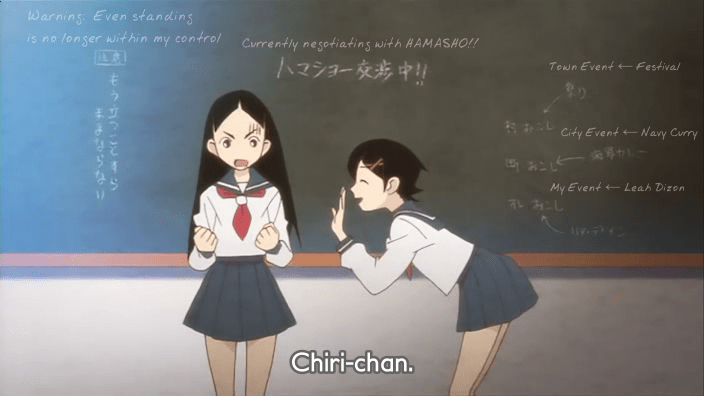
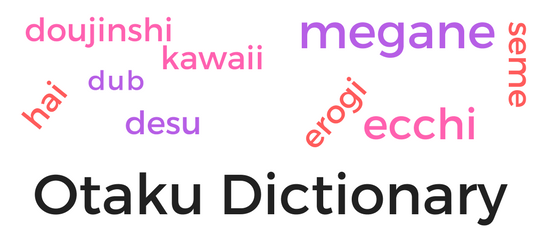
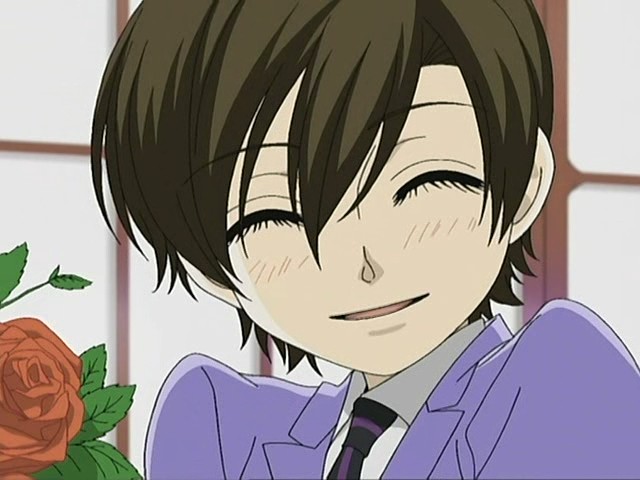

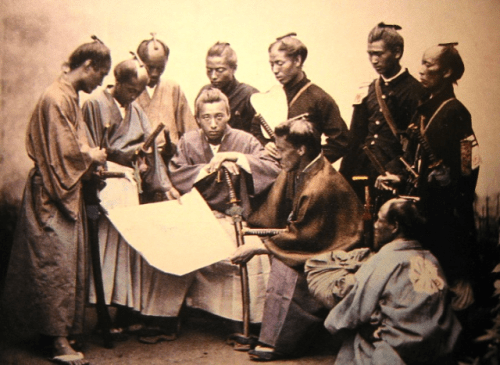
“Sempai” isn’t wrong. It’s just using a different system for writing Japanese with English characters. んぱ is written as “mp” in the Traditional Hepburn system (and also in Japan Railway station names). The same characters are written as “np” in the Revised Hepburn system, which is the most commonly used today. But both ways of writing are correct.
Since I had written the article, I have encountered the traditional Hepburn system. Thanks for the correction!